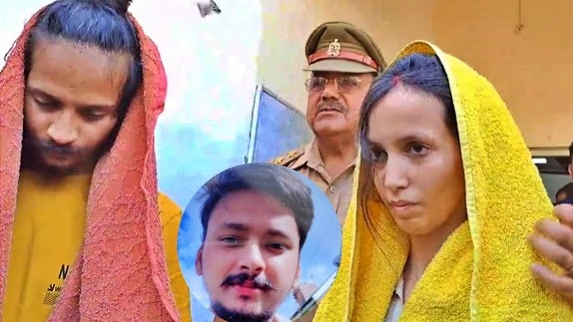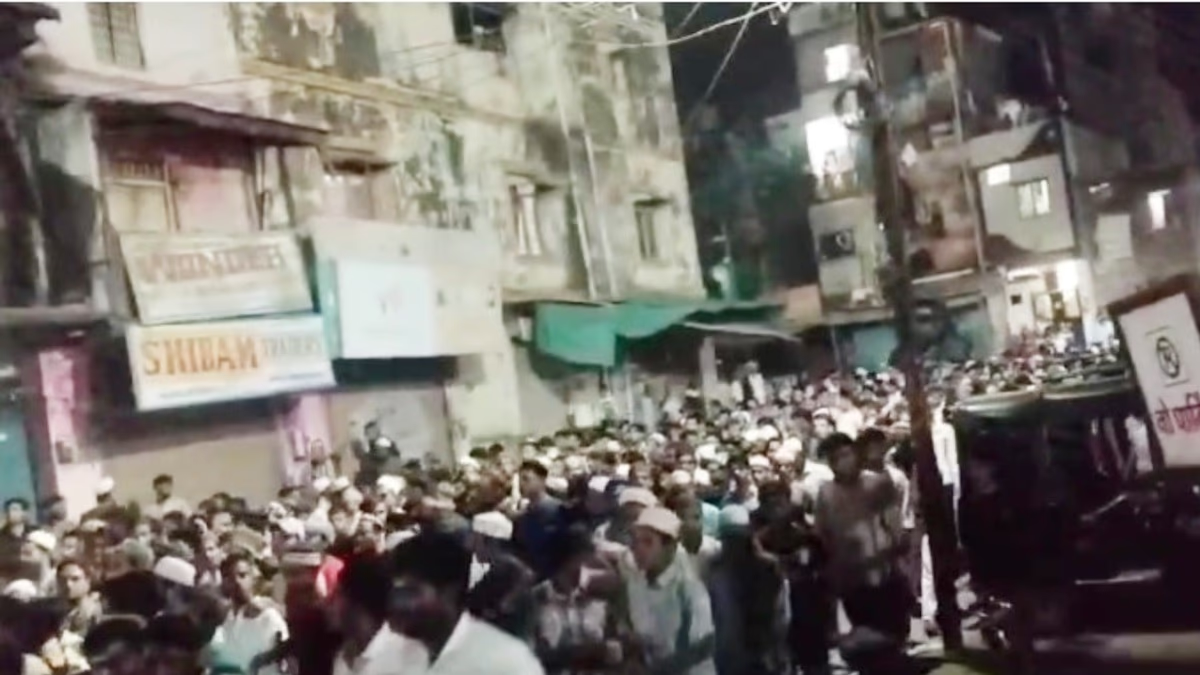In an effort to find a solution to the Russia-Ukraine war, US President Donald Trump engaged in nearly two hours of conversation with Russian President Vladimir Putin on Tuesday. The talks led to a positive outcome, as Russia agreed not to target Ukraine's energy infrastructure for 30 days. However, Putin did not consent to a complete ceasefire, which the US had already negotiated with Ukrainian President Volodymyr Zelensky.
Last Tuesday, a US delegation led by Secretary of State Marco Rubio met with Ukrainian officials in Jeddah, Saudi Arabia. A joint statement from both nations indicated that Ukraine is willing to accept the US proposal of a 30-day ceasefire with Russia. After an eight-hour discussion, Marco Rubio remarked that the ball is now in Russia's court.
Zelensky's Conditions Displease Russia
The terms on which Zelensky agreed to a ceasefire were not well-received by Russia. According to Zelensky, the US has agreed to once again provide military aid and intelligence to Ukraine. Putin has repeatedly stated that US military assistance to Ukraine is a major reason the conflict persists. When Trump called Putin on Tuesday, he outright refused a complete ceasefire.
Just before the conversation between Presidents Trump and Putin, the White House commented that 'we have never been closer to a peace settlement in Ukraine.' Trump also took to Truth Social, stating that weekly thousands of soldiers from both sides are being killed and this must be stopped. Although it was believed Trump could convince Putin for a complete ceasefire directing towards the end of the war, their dialogue did not yield considerable progress in that direction.
What Do Experts Say About the End of the Russia-Ukraine War?
Swarn Singh, a professor from the School of International Studies at Jawaharlal Nehru University, speaking to Aaj Tak Dot In, states, 'The pace at which President Trump wanted to implement a ceasefire may not happen so rapidly. However, the changes are commendable. He has persuaded both parties for a 30-day truce to further dialogue. An agreement on prisoner exchange has also been made. These developments and signs of a ceasefire are positive. A war that seemed interminable now at least has the potential for a truce.'
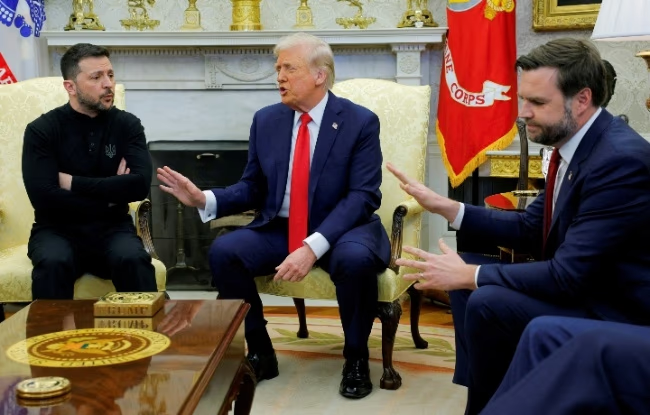
Source: aajtak
Professor Swarn Singh further adds that even after the ceasefire, violations can be expected on both sides, similar to the situation between Hamas and Israel in Gaza. On February 28, when Ukrainian President Zelensky was speaking with Trump in the Oval Office, he consistently held Putin responsible for the war. He accused Putin of committing atrocities against Ukrainian people and cited previous ceasefire breaches. When Trump spoke with Putin on Tuesday, Putin blamed Zelensky for the war. Professor Swarn Singh emphasizes the lack of mutual trust between the two parties.
He mentions, 'Trump has already stated that territories currently held shall remain with respective holders, which Zelensky absolutely does not accept. He insists on reclaiming Crimea, lost in 2014. On the other side, Putin states that in ceasefire discussions, not only should Crimea be recognized as part of Russia, but the four small territories captured in Ukraine should also be acknowledged as independent countries. Furthermore, there should be guarantees that Ukraine does not join NATO, and international forces should not remain in Ukraine. These numerous conditions and lack of consensus lead to ongoing ceasefire violations.'
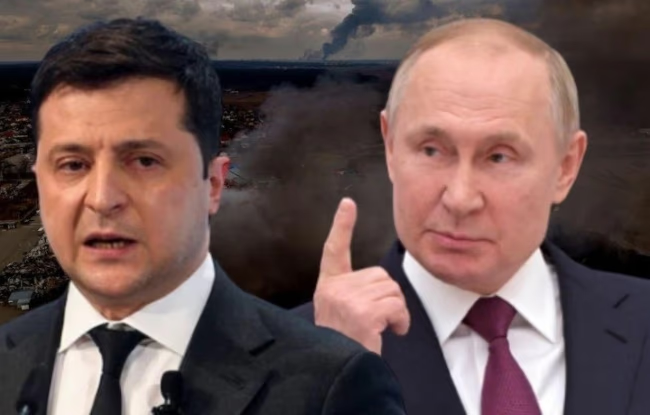
Source: aajtak
Since the war began between Russia and Ukraine on February 24, 2022, Russia has occupied four small territories within Ukraine: Donetsk, Kherson, Luhansk, and Zaporizhzhia.
Foreign affairs expert and author Robinder Sachdev, known for his book on Donald Trump titled 'Trumpotopia,' believes that the war between the two countries is unlikely to cease, as Ukraine continues to demand its territories back from Russia. However, he envisions a possible ceasefire scenario between the countries over the next one-and-a-half to two months.
Robinder Sachdev further comments, 'Before coming to power, Trump claimed he would immediately halt the war, yet a complete ceasefire has not been achieved, which has sparked criticism. I believe another meeting between the US and Russia is imminent, and if a ceasefire occurs in one-and-a-half to two months, it will likely adhere to Russia's terms.'
Ukraine's Lessons from the US-backed War with Russia
When Russia attacked Ukraine in February 2022, it was widely believed that the war would conclude in a few months due to Ukraine's inability to counter Russian weaponry. However, aided by the US and Europe, Ukraine's resilient defense against Russia took many by surprise.
This conflict predicted to end in a month's time has persisted for nearly three years, but with Donald Trump returning to power on January 20, strategic dynamics shifted. Russia, once isolated on the international stage, found itself reintegrated into global politics. Meanwhile, Ukraine was compelled to accept a ceasefire proposal accommodating all US demands.
Robinder Sachdev asserts that the Russia-Ukraine war serves as a lesson not only for Ukraine but globally. Zelensky positioned his country amidst a war, but without American assistance, the conflict would have ended in a month. The pivotal takeaway for Ukraine is to avoid being provoked into war. More than Ukraine, this war serves as a lesson for Europe.
'Russia is Winning the War.'
Sujata Ashwarya, a Western Asia expert and professor at Jamia Millia Islamia University, states, 'In this war, Ukraine, bolstered by the West, is losing severely, while Russia is emerging victorious. Russia is the winning side, standing strong. It is also true that despite their dislike, the US and Europe are losing money in Ukraine instead of utilizing it domestically. It is crucial to end the war, and as an intermediary, the US should minimize Ukraine's losses as much as possible.'
Could India Send Peacekeeping Forces to Establish Lasting Peace in Ukraine?
Following the Ukraine war truce, European countries, especially Britain and France, proposed establishing a peace force. A spokesperson for British Prime Minister Keir Starmer indicated that numerous countries are ready to dispatch peacekeeping forces to Ukraine. They mentioned that over 30 countries are willing to contribute troops to this peacekeeping initiative.
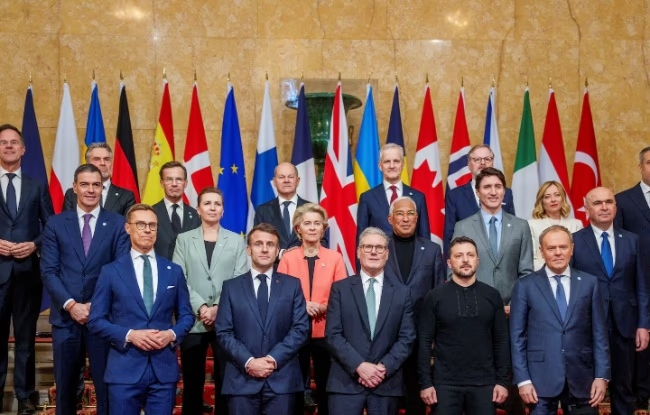
Source: aajtak
However, Russia greatly opposes the deployment of NATO forces on Ukrainian soil. Many experts suggest India should intervene. During the Raisina Dialogue 2025, Congress leader Shashi Tharoor discussed the prospects of India sending peacekeeping troops to Ukraine.
Nevertheless, he noted that such a decision would depend on several factors. Under the right conditions, India could play a role in stabilizing Ukraine after the war. Shashi Tharoor stated India has historically contributed to global peace, deploying 2.5 million peacekeepers in 49 different missions.
Professor Swarn Singh concurs with Shashi Tharoor’s views. He states, 'Russia considers India a friend. It prevents other countries’ troops from entering Ukraine, but it might consent if India participates with the United Nations peacekeeping force. Russia does not trust any other country.'
Was India Missed in Resolving the Russia-Ukraine Conflict Instead of Saudi Arabia?
From the onset of the Russia-Ukraine war, India prioritized diplomacy and dialogue. While India continues to purchase oil from Russia, it simultaneously provides humanitarian aid to Ukraine. Prime Minister Modi has met with the leaders of both countries multiple times. Accordingly, it was believed that India could mediate the Russia-Ukraine conflict.
Just a day after the one-year anniversary of the war in February 2023, Prime Minister Narendra Modi expressed India’s willingness to participate in any peace efforts to resolve the crisis. However, Trump emerged as a mediator, choosing Saudi Arabia’s capital for negotiations.
On February 18, in Saudi Arabia's capital Riyadh, US Secretary of State Marco Rubio and Russian Foreign Minister Sergey Lavrov first engaged in talks aimed at resolving the Ukraine crisis. Ukrainian President Zelensky also traveled to Saudi Arabia for discussions with the US and Russia on a peace agreement.
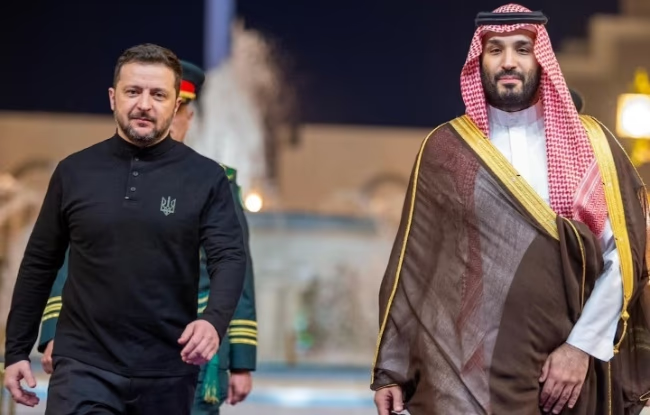
Source: aajtak
Following Saudi Arabia's involvement in the Russia-Ukraine conflict resolution, is India’s chance at being a peace broker gone? Professor Sujata Ashwarya responds, 'India is a US ally, but not a friend. Conversely, Saudi Arabia is America’s long-time military ally. Gulf states, including Saudi Arabia, are perceived as neutral parties. India, with its longstanding ties to Russia, and its significant oil purchases post-war, does not qualify as neutral.'
She further comments, 'Importantly, Saudi Arabia serves as a military ally to the US. Whereas, India represents a strong independent stance, possessing its own opinions on conflict resolution. We are not neutral; we’re autonomous, and that is our strength.'
Meanwhile, Robinder Sachdev observes that Saudi Arabia's financial clout, its oil, and its status in the Middle East exceeded India's bid for prominence in the Russia-Ukraine conflict.
He claims, 'Without a doubt, India could have significantly contributed to conflict resolution. During Prime Minister Modi's third term, his first international trip was to Russia. There, he expressed India's desire to play a proactive role in resolving the conflict. Subsequently, PM Modi visited Ukraine and met with Zelensky. Had Trump chosen India, the US would have greatly benefited in the war. However, Saudi Arabia’s financial and oil prowess won over. Trump is eager to reduce oil prices as high tariffs would further escalate inflation in the US.'
Robinder Sachdev concludes, 'Trump is intent on reducing oil prices to curb inflation. Hence, he aims to elevate Saudi Arabia’s global stature and align with Crown Prince (Mohammed bin Salman). Saudi Arabia announced a $600 billion investment in the US, which aligns with Trump’s goal to attract money into America.'
Why Is Trump Rushing to End the War?
During his presidential campaign, Trump pledged to swiftly end the Russia-Ukraine war. Having assumed power, he has made significant efforts toward this goal, and progress is visible. Russia and Ukraine have accepted a partial 30-day ceasefire. Some analysts suggest Trump wants to swiftly conclude the war to shift focus on the Indo-Pacific region, particularly China. How might this affect India?
Robinder Sachdev posits, 'A shift in US focus towards the Indo-Pacific region would benefit India, as this would increase US investments, bolster defense spending, and establish new military bases. Consequently, China may prioritize its resources against US interests, which could shift focus away from India. Geopolitically, this is advantageous for India. This may prompt China to improve ties with India, fostering warmer relations.'
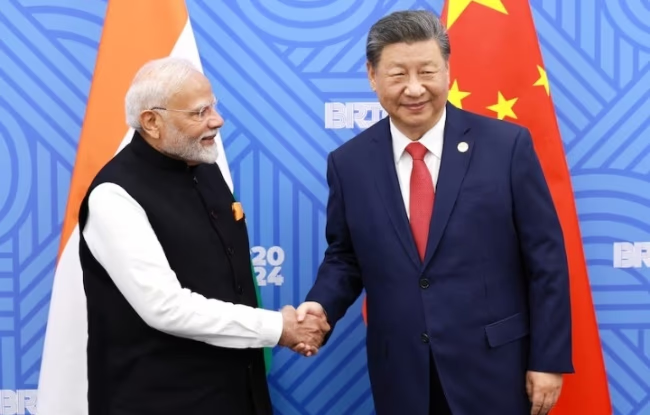
Source: aajtak
He adds that potential challenges may arise for India if this occurs. The US might pressure India for military cooperation, posing a challenge.
Professor Swarn Singh mentions, 'From his first term, Trump has focused on the Indo-Pacific. He acknowledges that China not only has the intent but now also the capability to shift US leadership from the region and establish its dominance. The primary challenge for the US in international structures is China. Just as it is said that China, not Pakistan, is India's real problem, similarly, Trump believes that China, not Russia, is the real issue. He wants to calm Russia and direct full attention to China.'
Russia is leveraging America's urgency to secure its terms, aiming to weaken Ukraine's resistance and demanding Western countries cease weapon and intelligence support. However, Trump has not yet agreed to Putin's terms.
Simultaneously, following Trump's dialogue with Putin, Russia and Ukraine exchanged nighttime attacks. Ukraine accused Russia of targeting its civilian infrastructure, while Ukraine attacked a Russian oil depot, igniting a massive fire.
Amid the hostilities, a positive aspect is the ongoing progress in Russia-Ukraine peace talks. A special envoy from Donald Trump, Steve Witkoff, confirmed the continuation of discussions on Ukraine, scheduled for Sunday in Saudi Arabia.


